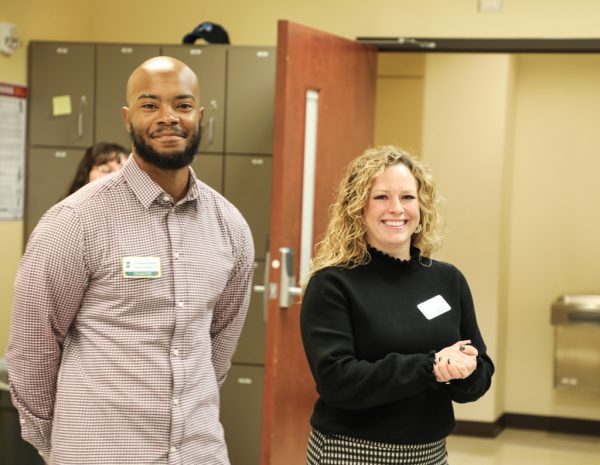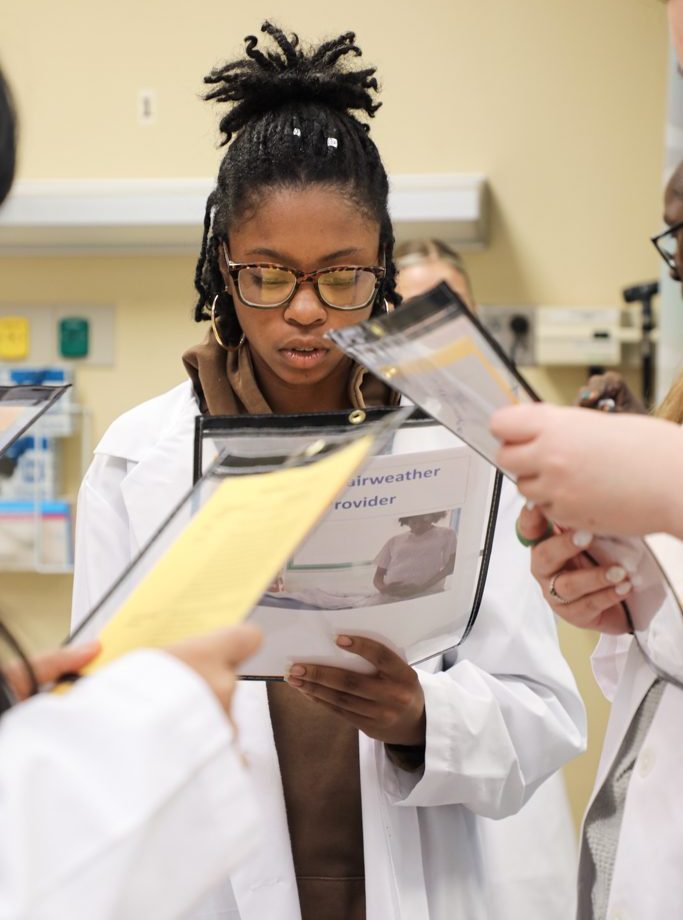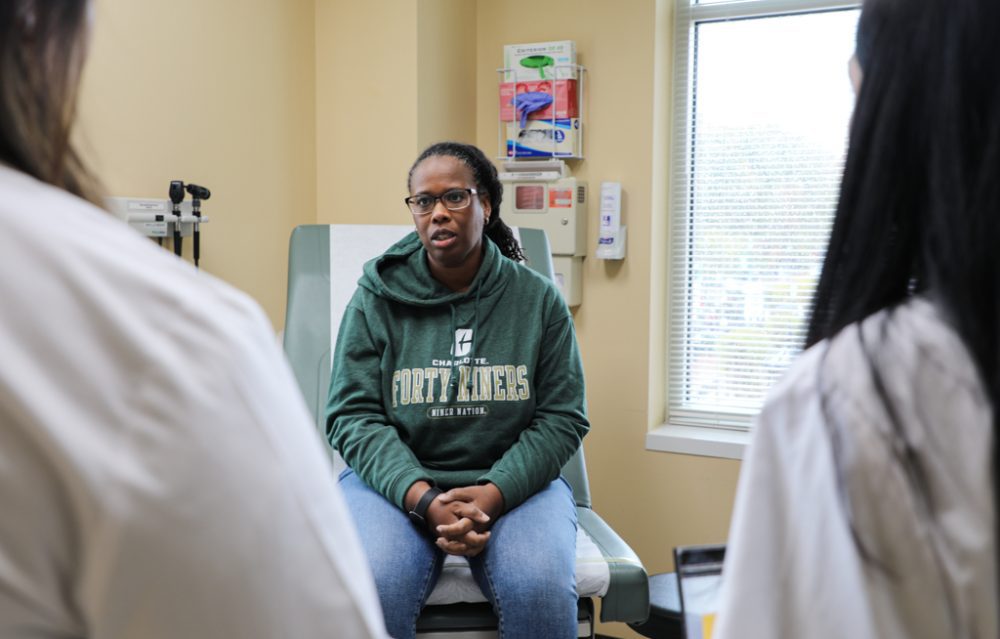University Workgroup Brings Awareness to Maternal and Child Health Issues

Black mothers and infants are statistically having worse health outcomes than their white counterparts. One of the goals of the Charlotte Maternal and Child Health Workgroup is to conduct crucial conversations about inequity issues such as this one and discuss solutions for improving maternal and child health broadly in the Charlotte region.
“We have the medical technology to ensure people have safe pregnancies,” said Associate Professor Alicia Dahl, Ph.D. “We have made health insurance more accessible. We have plenty of opportunities for moms and babies to make it out of that experience okay and healthy. So, when you’re not seeing that for all people, it’s an alarm. We need to pay attention to this and find solutions.”
Dahl, along with Assistant Professor Lorenzo Hopper, MPH, Ph.D. and Assistant Professor Allissa Desolge, Ph.D. — all from the Department of Epidemiology and Community Health within the College of Health and Human Services — lead the Charlotte Maternal and Child Health Workgroup, a volunteer effort that fosters collaborative efforts to strengthen maternal and child health work to benefit the community.
“As a university, one of the ways we can contribute to finding solutions is through education and conversation,” Dahl said.
The workgroup has covered a lot of territory during its short tenure. Launched by Hopper and three public health graduate students in 2022, the group’s foray into community discussions was its “Crucial Conversations in Maternal and Child Health,” an online speaker series covering subjects such as breastfeeding, childhood vaccinations, Black birthing matters, and infant mortality.
Following the success of those ongoing conversations, the workgroup held its first in-person event in 2023 — a screening of the film “After Shock” followed by a panel discussion of the documentary’s subject matter: fatal childbirth complications.
This past April, Care Ring, a Charlotte nonprofit providing health services to the uninsured, asked the Charlotte Maternal and Child Health Workgroup to help plan a one-day conference on Black maternal health. Hopper and several graduate students spoke at the event, which attracted more than 300 participants.
“Through these events, the workgroup is able to amplify the issues and the conversations around them and build relationships and local partnerships for collaboration,” Hopper said.
Real-life Scenarios Shed Light on Patient Experience
The collaboration with Care Ring led to the workgroup’s recent on-campus Respectful Maternity Care Simulations. The free, two-hour events have served as training opportunities for health care providers, students in health and human services, community organizations, and others. During the simulations, attendees participate in scenarios using scripts, wearing lab coats, and playing various roles. The reenactments take place in the School of Nursing’s Learning Resource Center, which offers replicas of exam rooms.
“The School of Nursing simulation spaces help people to get in the zone in terms of thinking of place and where these interactions are happening in real life,” Dahl said.
Sponsored by Care Ring and conducted by training agency First Team America, all of the scenarios are based on real experiences and packaged in a way that helps show how communication breakdowns can lead to serious health consequences for women who are carrying or delivering a baby. Afterwards, the group reflects on what could have gone differently during the process.

“It’s not uncommon for people to have a story about an interaction in the health care system that isn’t favorable or didn’t go the way they expected it to go,” Dahl said. “We’re really narrowing down on the pregnancy and postpartum period in these simulations. There’s an opportunity for us to pause and think about what interactions are happening in and out of the health care system that have a major influence on people’s health and well-being.”
Because of the strong interest in the simulation events, the workgroup is considering future events that explain the work of doulas and midwives and how to find those services and feel supported in that space.
“We want to continue to grow and be consistent with our offerings,” Hopper said. “We want to create space for people to share their interests and the work they’re doing and generate partnerships and community. We want to position ourselves to expand our reach and become a leading hub for maternal and child health at UNC Charlotte.”
